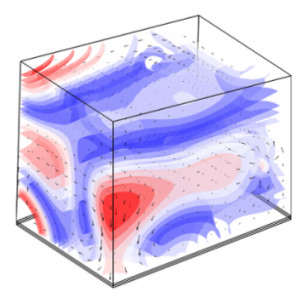News and Updates
Find out what's happening in the area of Horizon Europe, Digital Europe and Horizon 2020
Ethics Guidelines for Trustworthy AI - Hints and tips for HEU proposals
Published on | 7 months ago
Programmes Digital, Industry & Space Horizon Europe HorizonEU L+F AI, data & cloudThe video at the end of this article contains a training on Artificial Intelligence (AI) in Horizon Europe, given by Cristina Contero Almagro (Aphaia). Over the past five years, Europe has prioritized AI as a means to enhance its competitive edge. This training provides an overview of key milestones in AI regulation, including the ethics guidelines for trustworthy AI, the Assessment List for justworthy AI, and the proposed Artificial Intelligence Act. The focus lies on what you can do within the frame of self-assessment, and is especially relevant for AI-heavy projects.
You can find below the basic information (and links to more information) of the most important documents.
Ethics Guidelines for Trustworthy AI
The foundation of AI regulation began with the Ethics Guidelines for Trustworthy AI in 2018. The guidelines defined trustworthy AI based on three components: legality, ethical adherence, and robustness. To achieve trustworthy AI, compliance with laws, ethical principles, and robust technical and societal frameworks is essential to prevent unintended harm and enhance societal acceptance of AI technologies.
Assessment List for Trustworthy AI
Following the ethics guidelines, the Assessment List for Trustworthy AI was published in late 2019, serving as an operational tool. It outlines specific requirements and questions related to ethical AI, aiding applicants and stakeholders in understanding and assessing their projects' adherence to ethical standards. While not offering definitions, it prompts critical self-reflection to ensure ethical considerations are adequately addressed.
The Proposed Artificial Intelligence Act
The Artificial Intelligence Act, although not yet applicable, represents a significant step in AI regulation. It categorizes AI systems into four risk levels: acceptable risk, high risk (e.g., critical infrastructures), limited risk (e.g., standard websites), and minimal risk (e.g., video games). Each category corresponds to distinct regulatory requirements, reinforcing transparency and accountability, especially in high-risk applications.
Privacy and Data Governance Requirements
Privacy and data governance are key aspects linked to principles of preventing harm, fairness, and accountability. This requirement emphasizes the critical role of data management and privacy protections. Ensuring compliance with data privacy regulations is vital in the majority of AI projects, highlighting the need for familiarity with these aspects in AI development and implementation.
Understanding the evolving landscape of AI regulation in Horizon Europe is fundamental for successful project applications. The Ethics Guidelines, Assessment List, and proposed Artificial Intelligence Act provide a roadmap for developers and stakeholders to navigate the legal and ethical implications of AI. Addressing privacy and data governance concerns is equally vital to ensure responsible and effective AI deployment within the European context.
Related News
|
2024-04-26
|
1 day ago |
Opportunity to join the European Cancer Imaging Initiative |
|
2024-04-26
|
1 day ago |
Open calls to join communities on the Mobility Data Space |
|
2024-04-26
|
1 day ago |
Call for tender: Platform for Advanced Virtual Human Twin (VHT) Models |
|
2024-04-24
|
4 days ago |
Evaluation completed: DIGITAL-2023-CLOUD-DATA-AI-05-CULTHERITAGE & DIGITAL-2023-CLOUD... |
|
2024-04-23
|
4 days ago |
Call HORIZON-JU-SNS-2024: number of submitted proposals |
|
2024-04-23
|
5 days ago |
Horizon Europe work programme admendments - Cluster 4 |
|
2024-04-22
|
5 days ago |
Update to the Horizon Europe ‘main’ work programme 2023-2024 and limited extension to... |
|
2024-04-22
|
6 days ago |
FAQs published for EuroHPC call European Quantum Excellence Centres |
myOVERVIEW
-
sign up for personalised information
We offer news and event updates, covering all domains and topics of Horizon 2020 & Horizon Europe.
Stay informed about what matters to you.
By signing up, you can opt in for e-mail notifications and get access to
a personalised dashboard that groups all news updates and event announcements in your domain(s).
Only for stakeholders located in Flanders
Latest News
1330 articles available search in articlesHealth AI, data & cloud Deployment: Best use of technologies
Call for tender: Platform for Advanced Virtual Human Twin (VHT) Models
The European Commission has published a call for tender (procurement) under the Digital Europe programma for a Platform for Advanced Virtual Human Twin (VHT) Models. The main objective of this action is to develop a distributed platform making available to users a federated repository of VHTs related resources, a combined set of op... read more
Climate, Energy, Mobility Missions
Main changes in the amended version of the Horizon Europe Cluster 5 work pr...
The European Commission has published the amendments to the Horizon Europe main workprogramme.The main changes for Cluster 5 - Climate, Energy & Mobility concern: Two new call topics have been included in the amended Cluster 5 Work Programme: HORIZON-CL5-2024-D3-02-13: Support to the activities of the SET Plan Key Action area Re... read more
Testimonial

PBNv2 - a MSCA ITN in the field of automotive R&D
The Marie Skłodowska-Curie Action (MSCA) European Innovative Training Network “PBNv2 - Next generation Pass-By Noise approaches for new powertrain vehicles” started in May 2017. Their research has the shared objective of investigating the possibilities to decrease pass-by noise of vehicles.
The project is a collaboration between 17 research institutions and companies in the European automotive R&D and provides a learning environment for 14 PhD fellows. The Belgian partner is the Noise and Vibration Research Group of KU Leuven, and this project is one of the many Horizon 2020 MSCA Innovative Training Networks that the KU Leuven research group participates in.

